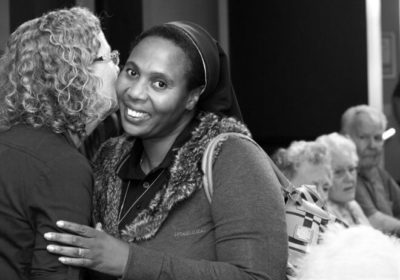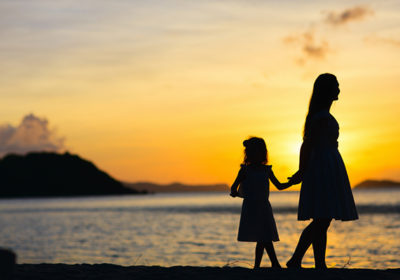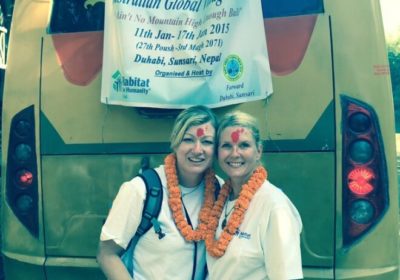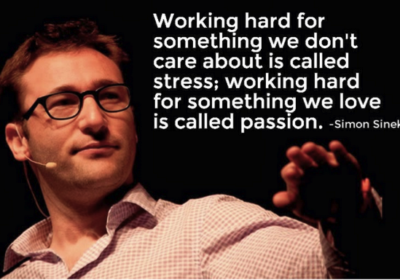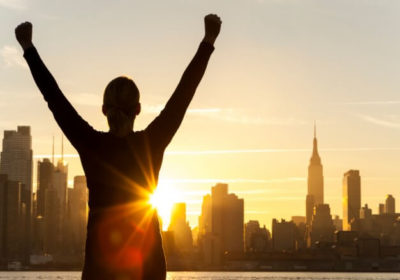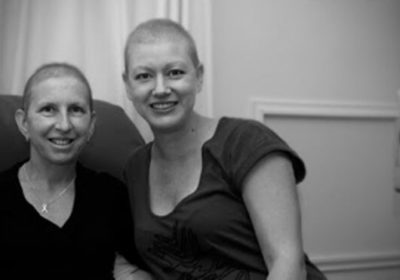- Stats: 2425 7 0
- Author: Melissa Histon
- Posted: 08/05/2019
- Category: Blog, Health and Wellness, Inspirational Women, Soul Sista Stories
- Tags: dying from cancer, dying from ovarian cancer, Jill Emberson, Living with incurable disease, Ovarian cancer, pink meets teal, what I've learned about life, women's cancers, women's health and wellness, world ovarian cancer day
Jill Emberson: Living with incurable ovarian cancer
My name’s Jill Emberson. I’m a mom, I’m a journalist, and I’ve got ovarian cancer.
Throughout the second half of 2015, I’d been suffering constipation and gone to my doctor, I’d gone to a naturopath and they kept saying, “Let’s fix it with this, fix it with that.” I had a bit of lower back pain as well, but again, I was used to that. That had happened to me a lot during my life.
In the summer, January of 2016, on my way to the beach, I had a very sharp pain in my pelvis that caught me in my step, but it went away. When it happened again three weeks later I thought, “Now, that’s weird.” So I went to the doctor and the doctor sent me off to do a pelvic ultrasound and a blood test. I almost missed the appointment to do the ultrasound because I was so busy at work and they almost cancelled it on me because I got there an hour late. That was a Friday. When I saw the radiographer’s face gasp, I knew there was something wrong.
So I went out and rang my doctor, got an appointment straightaway for the Saturday morning. She sent me to get a blood test on the Saturday afternoon, which I did urgently. On the Monday morning, I had to make an appointment gyneoncologist, which I squeezed in the nine o’clock news break. While I was on air, I rang the oncologist and said, “Quick, can you get me in?” He saw me three days later and said, “You look like you’ve got ovarian cancer, but we’ll only be able to tell when we do major surgery. So sign away here to let me open you up from my pubic bone to my chest.” Because it’s only when they open you up completely and have a look inside that they can confirm if it’s ovarian cancer or not.
I’d been booked to emcee an ovarian cancer fundraiser, but I threw that and everything else away and entered two years of nightmarish treatment and I’m still in treatment today.
After my surgery, major, five hours on the table, the doctor sat at the end of my bed and said, “We did the best we could. I think I got it all out, but I can only offer you a 50/50 chance of being alive in five years.” I couldn’t believe it. He thought it was a successful operation, but the best odds he could give me were five years.
After that, and this is quite typical, they give you six months of really strong chemotherapy to try and kill whatever the surgery couldn’t remove. You then cross your fingers and your legs and pray that it doesn’t come back. Or if it is going to come back, that it doesn’t come back for a long time.
But mine came back in nine months. When ovarian cancer comes back, it’s incurable, it’s a terminal disease because there is no cure for relapsed ovarian cancer. It was pretty devastating, as you can imagine and it’s amazing that I can sit here now and tell you that without breaking down, but some days I just have more strength than others and today, I feel strong.
But that was totally traumatic back then. Everything was just disastrous. They offered me more chemotherapy and then I got on a drug trial, but sadly the drug trial didn’t work for me, so I had to do some more chemotherapy and the chemo that you do when you’ve got relapsed ovarian cancer is called palliative or salvage chemotherapy because they know it’s not chemo that’s gonna save your life.
So that bought me a bit of time. It brought me up to about July of 2018 and the doctor said, “You’ve now got a window, Jill, hopefully of several months of good health. Go off and make hay while the sun shines.” So I got married. Great wedding. My friends said they would’ve bought a ticket it was so good and then we all went to Europe for about nine weeks. I came home hoping that the chemo wasn’t back, that it wouldn’t be back until around about now, but it was back by December of 2018, which means that I’m back on more chemo.
Most days, I wake up and the will to live just is in the bedroom and I go about my business. I need to keep really busy. I need to take medication to stay calm, keep my anxiety levels down. I need to do a lot of therapy. I need to try and stay fit and I need to carry on with live. I’m trying to live as normal a life as I possibly can, which is why I’m thrilled to be back at work part time. I’m thrilled that my daughter’s back at uni full-time, my hubby’s back at work full-time. We’ve got our beautiful house that we renovated while I was doing chemotherapy. We called it ‘chemovations’.
The psychologist calls it functional denial. The load is so heavy on your brain that this is gonna happen to me, my wonderful cut short. It’s so heavy, you just kind of put it out of your mind and you live with what’s in front of you and that’s kind of what I do.
So I have a natural tendency to be happy and to see the beauty of the sky, of the green try in the backyard. I can get a buzz out of that stuff. And I sometimes wonder, though, is my life brighter since all of this has happened? I find we’ve got so many wonderful things in our lives. With my husband, my family, so my mindset is kind of… it automatically goes to positive, but it doesn’t always stay there. Sometimes, I can’t get out of bed. Sometimes, I just fall in a heap. And often, that’s when I see young moms with their babies and I go, “Oh, that might not be something that I’m gonna be able to share.” And that’s when I really struggle. That I might not be able to share being there for my daughter.
I don’t have a bucket list. I don’t need to see the world. I’ve seen a lot of things in the world. I’ve traveled enormously. I took my daughter to seven different countries before she was two. I do feel profoundly driven to make a difference with this disease. It really horrifies me that unless we get organized and change the outlook for this disease, my daughter, who’s 23 risks facing the same prognosis and all of her friends in their 20s and 30s risk facing the same prognosis when they get into their late 50s and 60s, which is a lousy 46 percent survival. It’s so low and I’m driven to make sure that women repeat what they did for breast cancer to get it up to the fabulous survival rate and do that now for ovarian cancer. And I’m really driven by that.
I’m also driven by making sure that every day is pretty damn good, that everyone is happy, that we eat good food, that we have a nice time, we swim in the ocean, I stay in touch with my family and my friends. So that drives me. Just having a happy, peaceful quality of life. Staying really close to my daughter, which is pretty normal ’cause we’re a duo, we grew up together for 18 years. But it’s making a difference. I feel compelled to do that.
What we need for ovarian cancer is some dedicated funding. Large sums of money. The kind of thing that say, the brain cancer groups have got now, which is a pot of 100 million dollars in the medical futures research fund dedicated to brain cancer. We need to do a similar thing for ovarian cancer.
And why money is important, and I know everything needs money, money attracts the researchers. Because researchers need to work, they’ve got kids and families, so with no money, we don’t get the research, we don’t get the improved outcomes. And, unfortunately, ovarian cancer has had insufficient funds. Breast cancer has had four and five times the amount of money. Cervical cancer has had huge sums of money thrown at it. And look, just this week, they’ve declared that the world, or Australia at least, is poised to eradicate cervical cancer.
Why has ovarian cancer not had the money? Only 1600 women get this cancer every year, but a thousand of us die and we die really quickly. You know, on average, we have 47 months of good health. I was diagnosed 37 months ago and I’ll be buggered if my daughter is going to have the same prospects of this cancer when she gets to my age. Forget it. I just can’t risk with that.
I probably knew this, but I realize absolutely now that life is a gift, an incredible gift and we do have the choice, I think largely we have the choice to make the most of it, but not everybody does. Not everybody has the capacity through one reason or another to not see it as a precious gift. I certainly feel that now. I’m horrified that it might be robbed from me. I would make a great old lady, I know that. I’d make a really good old lady. I’d be really bossy on the bus and I’d played old ladies cricket or something so, you know, the prospect of being robbed of that makes me see.
When I see older people who are grizzling about their sore this or their sore that, I go, “Oh, come on. Wake up. You’re alive, lucky you!” So I see staying alive to be old as really, even though we can whinge about, what a lucky break.
I wish I hadn’t have wasted so much time feeling shit about myself which I did for a long time in my younger days. I was riddled with self-doubt for a long, long time. I hated the color of my skin for a long, long time. Always wished I should’ve been a better journalist. So, I’ve learnt that actually, I’m not bad, I’m pretty damn fine as a person. Bit rough around the edges, but I’m pretty fine with who I am.
I’ve learnt that I can actually make a difference. That the things I do in my life do have meaning for other people and that was really confirmed for me this year when I was named the Newcastle Citizen of the Year. I got a call from the Lord Mayor and I’m like, “You’re kidding, me?” And she said, “Yes, Jill. Unanimous decision.” So that has really lifted me this year, given me courage to continue doing more talking, more campaigning. So, I’ve learnt that I can make a difference and I believe that we actually all can if we can dig deep enough to believe in ourselves, ask for help.
My predicament is so bad that I can’t sleep without medication which I willingly accept now, but I do wake up at three in the morning and it is dark and it is the darkest hour, but what I’ve learnt is that it’s always better in the morning. It’s always better in the morning. I think to get outside and breathe in the air. It always is better in the morning. And if not the next morning, then the morning after.
Author
Melissa Histon
Photographer, philanthropist, adventurer, blogger, avid permitter and social changer, Melissa Histon is a woman on a mission to make a real difference to the lives of women globally. Melissa spent 10 years working in the corporate world before leaving to establish a successful photography business. After experiencing a number of life-altering events, Melissa created The Sista Code in May 2014 with a dream to see women empowered, happy and connected. Whether it's building a house for the homeless in Nepal, interviewing inspiring women from around the globe, or creating events and campaigns to support sistas escaping domestic violence, Melissa knows that true change can only happen when we all stand together and boost each other.
Related Posts
